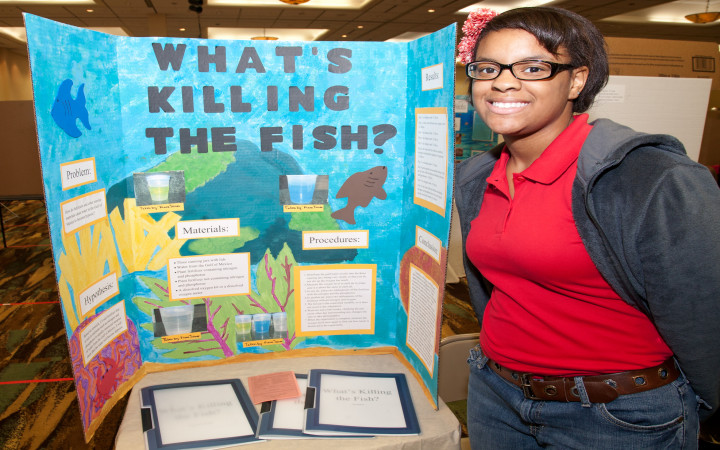Today’s Wonder of the Day was inspired by Christie. Christie Wonders, “What is Citizen Science?” Thanks for WONDERing with us, Christie!
Think of a difficult problem you've had to solve. What did you do? Did you find a solution? Did you ask for help?
Here at Wonderopolis, we love a good puzzle. It's fun to find new ways of doing things! However, we also know to ask for help when things get tough.
In 2005, a team of scientists at the University of Washington was trying to solve a puzzle. They'd spent years trying to learn how amino acids fold to form proteins. Finally, they decided it was time to ask for help.
The team asked people to download a new screen saver. The screen saver tried out different ways of folding, hoping to figure out how amino acids did it. When it found a new way to fold, the screen saver would send that information back to the team.
The team didn't realize that people would watch the screen saver as it ran. But curious people did watch the screen saver, and they thought about better ways for it to fold.
Soon, those people contacted the scientists and told them their ideas. In only a few weeks, these citizens solved the puzzle that the team had been working on for years. That's when scientists began to understand the power of citizen science.
What is citizen science? It's any project that lets everyday people help with scientific research. Citizen science has led to many new discoveries.
You may be WONDERing how you can take part in citizen science. Believe it or not, many citizen science projects are at your fingertips!
Do you play computer games? Some online games are actually citizen science projects. For example, the amino acids screen saver became a game called Foldit. On Foldit, teams look for new patterns in protein cells. Foldit teams compete to solve problems in science every day.
Would you rather be outside? Many citizen scientists study their own backyards. They collect data about honeybees, plants, and birds. Experts use this data to track the effects of climate change.
Do you enjoy watching the night sky? You're not alone! The website Galaxy Zoo crashed on its first day because so many people wanted to help out with this citizen science project. On Galaxy Zoo, citizens view pictures of other galaxies and sort them according to shape. Other space lovers help out with The Milky Way Project and help scientists map out our home galaxy.
There are so many ways to take part in citizen science. There are also many questions and challenges left to face in citizen science. How can we be sure the people taking part in these projects are knowledgeable and honest? Can we rely on all the information that's sent in? These are questions experts are still trying to answer.
Even with these challenges, citizen science is happening every day. Do you want to be a citizen scientist? What kind of projects would you work on? Would you rather play a game, go outside, or study space online? So many options exist!
Standards: ETS1.A




